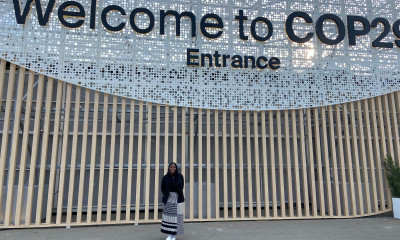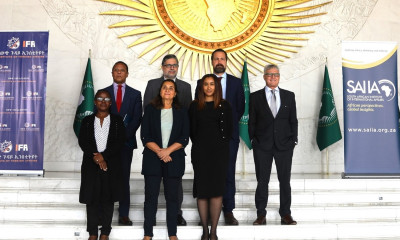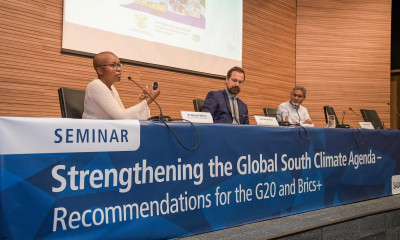eAfrica, November 2005
A REPORT released by the Working Group on Climate Change and Development advocates the following steps to manage the impact of global warming in Africa.
-
Increased support for small-scale agriculture: Diverse systems have been shown over time to be more resilient and more productive than commercial monocultures. Farming based on expensive and energy-intensive artificial inputs will be vulnerable to fuel price rises and add to climate change. Small farmers need a favourable policy environment and supportive research with a particular shift from rain-fed cultivation of drought intolerant maize to hardier crops or to irrigated agriculture.
-
Cut rich country gas emissions: Rich countries need to go far beyond their targets for reducing greenhouse gas emissions, set under the Kyoto Protocol, and cut emissions to a level that will halt global warming. Commitments to cut emissions should be gradually raised until 2012 and aim for cuts in greenhouse gas emissions of between 60% and 80% by 2050.
-
Help Africa leapfrog ‘dirty development’: There is great potential for sustainable and renewable energy in Africa. To meet people’s need for energy, improve health at the household level, and to help Africa leapfrog ‘dirty development’, international donors and financial institutions should switch investment from fossil fuels to promoting access to renewable and sustainable energy, remove obstacles to technology transfer, setting targets and timetables.
-
Test whether initiatives are climate proof and climate friendly: All policies and programmes should face the test of whether they will leave people in Africa more or less vulnerable to the effects of global warming. The test will be: Is this climate friendly and climate proof? In line with the recommendation of the Commission for Africa, climate change should be ‘mainstreamed’ within development policies, planning and activities by 2008.
-
Focus on local needs first: Africa needs to be freed from a one-size-fits-all development approach. The best responses to climate change will differ according to local circumstances, so flexible approaches are needed. The aim should be to secure livelihoods at the local level. – ‘Up in Smoke’, compiled by the New Economics Foundation, with the International Institute for Environment and Development in London.






